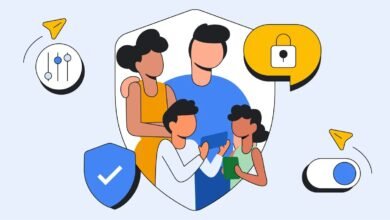9 Preschool Behaviors That Could Signal a Learning Disability

Source: https://www.parents.com/
Preschoolers with learning disabilities may show early signs that affect their development in areas such as speech, motor skills, social interactions, and cognitive abilities. Common learning disabilities at this age include dyslexia, dyscalculia, and dysgraphia, which can impact a child’s ability to understand language, recognize numbers, or develop fine motor skills like writing.
Here are some behaviors to look out for:
Speech and Language Issues: By age 3, most children can name body parts, common objects, and basic pronouns, and begin using plurals and asking “why?” Speech and language issues can be early signs of learning disabilities, such as auditory or language processing disorders, where the brain struggles with sound or language. Undiagnosed hearing loss or frequent ear infections can also delay speech. Mark Griffin, a special education expert, advises parents to seek a hearing assessment if concerned, even though hearing is typically checked at birth and around age 5.
Problems Understanding Numbers: By 36 months, preschoolers should understand “how many” and be able to show their age with fingers. They can typically recite numbers in order, though they may skip some. By age 4, children can usually count up to 20. A delay in this development could indicate dyscalculia, a learning disability that affects understanding numbers and telling time, according to Dr. Griffin.
Difficulty Reading, Writing, and Spelling: Between 3 and 4 years old, children should be able to recognize 10 or more letters when they see them. Some can spot their own first name or even a few words they see frequently. If your child is falling behind most of their peers in this area, it could point to a language-processing disorder or dyslexia, a learning disability that causes difficulty in reading, writing, and spelling.
Trouble Regulating Emotions: Children with ADHD may experience delays of up to three years in certain aspects of brain development, according to a study by the National Institutes of Health. Social and emotional skills are crucial for transitioning to kindergarten, as children need to cooperate with peers and manage frustration without acting out. By age 5, children should be able to regulate emotions and persist through challenges. If a child struggles with this, it doesn’t necessarily indicate ADHD or a learning disability, but it is something to monitor, according to Dr. Griffin.
Doesn’t Try To “Read”: Preschoolers can answer questions about book illustrations and may pretend to read by making up stories. By age 4, many can recite lines from a favorite book by memory, showing they understand that pictures help tell the story and that letters have meaning—key early literacy skills, according to Parlakian.
Struggles With Fine Motor Skills: Between ages 3 and 4, most children can hold a fork and spoon with their fingers and grip a crayon or marker properly. If a child is unable to do these things, it may indicate a delay in fine motor skills, which can sometimes be an early sign of dysgraphia, a learning disability that affects writing.
Difficulty With Auditory Processing: This might hint at an auditory- or visual-processing deficit that hinders your child’s ability to understand and use information that they hear or see. These deficits can affect speech, memory, and knowing where objects are in space
Trouble With Gross Motor Skills: By age 3, most preschoolers should be able to walk up and down stairs, jump, and use door handles independently. If a child isn’t doing these things, it may indicate gross motor delays.
Lacks Social Skills: Between ages 3 and 4, children should engage in interactive play with others and enjoy imaginative, pretend play. If they don’t, it’s a good idea to consult a pediatrician about a potential delay in social skills.
Read More: https://childreninfobank.com/safebank/9-preschool-behaviors-that-could-signal-a-learning-disability/
Image Source: https://www.parents.com/





